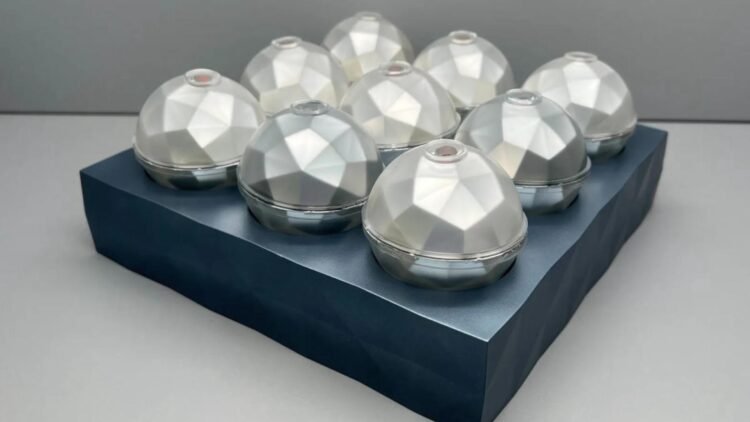Japan’s Kyosemi Corporation has introduced a game-changing solar energy innovation: the Sphelar solar cell. Unlike traditional flat solar panels, Sphelar panels incorporate spherical cells capable of capturing sunlight from all directions. This advanced design enhances energy efficiency and represents a breakthrough in how solar power can be harnessed.

How Sphelar Solar Cells Work
Traditional solar panels rely on flat crystalline cells that require precise alignment to capture sunlight effectively. In contrast, Sphelar’s spherical cells absorb direct, reflected, and diffused sunlight, making them ideal for areas with inconsistent light conditions. Offering nearly 20% energy conversion efficiency, these cells outperform many conventional technologies.
Additionally, the manufacturing process for these solar cells is eco-friendly. Unlike standard methods that lead to significant silicon wastage, Kyosemi’s approach uses molten silicon droplets, minimizing material use and production costs. This aligns with global efforts to adopt sustainable and cost-efficient manufacturing practices.

Applications of Sphelar Technology
The versatility of Sphelar solar cells opens up new possibilities across various industries:
- Building Integration: Transparent modules allow electricity generation while letting natural light pass through windows and facades.
- Portable Devices: Smartphones, sensors, and wireless devices gain extended energy autonomy with integrated Sphelar cells.
- Environmental Monitoring: Renewable-powered devices like air quality and temperature sensors benefit from this innovation.
These applications demonstrate how Sphelar technology blends functionality with aesthetic design, making it a valuable tool for urban development and product innovation.
Overcoming Challenges in Scaling Production

While Sphelar technology holds significant promise, large-scale production remains a challenge. Kyosemi is actively working to enhance its manufacturing processes, aiming to achieve automation and economies of scale. Once these hurdles are addressed, these solar cells could meet the increasing global demand for renewable energy solutions.
A Cleaner, Spherical Future
Kyosemi’s Sphelar solar cells represent a leap forward in renewable energy. By capturing sunlight from all angles and employing eco-conscious manufacturing techniques, this innovation paves the way for a sustainable energy future. Whether powering urban skyscrapers or everyday gadgets, Sphelar technology exemplifies how solar energy can evolve to meet modern demands.
Reference- INHABITAT, ECOticias, PHYS.ORG, Interesting Engineering, Popular Science






